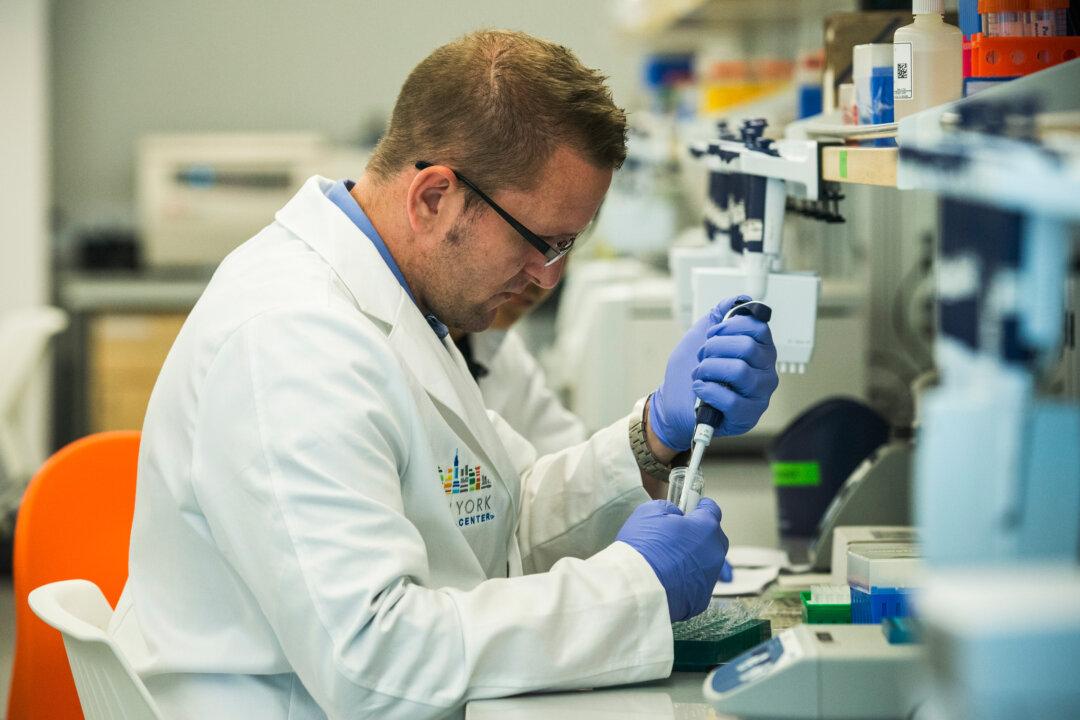Biologists at the Francis Crick Institute in London have applied for a license to edit the genome of human embryos, a highly controversial practice that is currently banned in the U.K., as well as the United States and most of Western Europe.
In a statement, the Crick Institute said that the gene-editing would be for research purposes related to understanding the development of the human embryo, and not for clinical use.
“This knowledge may improve embryo development after in vitro fertilization (IVF) and might provide better clinical treatments for infertility,” the Institute said in a statement.
Gene-editing has experienced a resurgence of interest since the 2012 introduction of CRISPR, a method that dramatically lowered the financial and technical barriers to the practice of cutting and pasting in sections of DNA. A number of start-ups that revolve around the new technology have formed, aimed at finding solutions to gene-based diseases sickle-cell anemia and cancer.
Last month, the start-up Editas raised $120 million in funds, including from investors like Bill Gates. Companies like Edita are focused on the editing of somatic cells, such as taking T-cells out of a patient with immune deficiencies, editing the genes in those cells, and injecting them back in a transfusion. T-cells are a type of white blood cell that scan the body for cellular abnormalities and infections.
However, the ubiquity of the technology has also spilled into areas that are more grey, ethically speaking.
In April, Chinese researchers edited the genome of human embryonic cells, a world first, all with the help of CRISPR. The cells were never viable, but the experiment raised alarms about the possibility of designer children, where an embryo’s genome is edited for human enhancement—which carries eugenicist connotations, as well as the possibility of introducing new, man-made genetic defects into the gene pool.
The concern is large enough that many researchers have called for a blanket restriction on germline editing (altering reproductive cells and embryonic tissues), not just for human enhancement, but also for research concerning the correction of genetic disorders, at least for now.
The Chinese researchers faced a wave of protest from the scientific community in the West, who condemned the work as playing with the lid on Pandora’s box.
Even before April, one of CRISPR’s inventors had already called for a temporary moratorium on all germline editing of human embryos until more comprehensive safety and ethical standards are established. Jennifer Doudna, a professor of Chemistry and Cell Biology at UC Berkeley, co-authored an article in the journal Science calling for strict controls on the technique.
“Application of genome engineering that create heritable changes in humans, introduce self-propagating mutations that sterilize insects, or trigger chromosome translocations that cause cancer are examples that have already been published in the scientific literature and could raise both legal and societal concerns,” Doudna said in testimony before Congress in June.
Although germline editing technically isn’t illegal in the United States, as it is in 15 countries in Western Europe, the practice already faces institutional pressure: the Research Advisory Committee of the National Institute of Health “will not at present entertain proposals for germ line alterations, only somatic ones—which are only growing.
At the moment, germline editing for human enhancement remains unavailable, if only for practical reasons: scientists simply don’t know which genes are responsible for most desirable traits. In 2014, British researchers found a NPTN gene that was linked to IQ; it only explained .05 percent of the variation in intelligence, but was considered a major achievement in the field.
Still, a map between the human genome and various characteristics may not remain murky forever. Since 1999, the Beijing Genomics Institute has been conducting large-scale genetic sequencing aimed at finding which genes, if any, are responsible for human genius.





